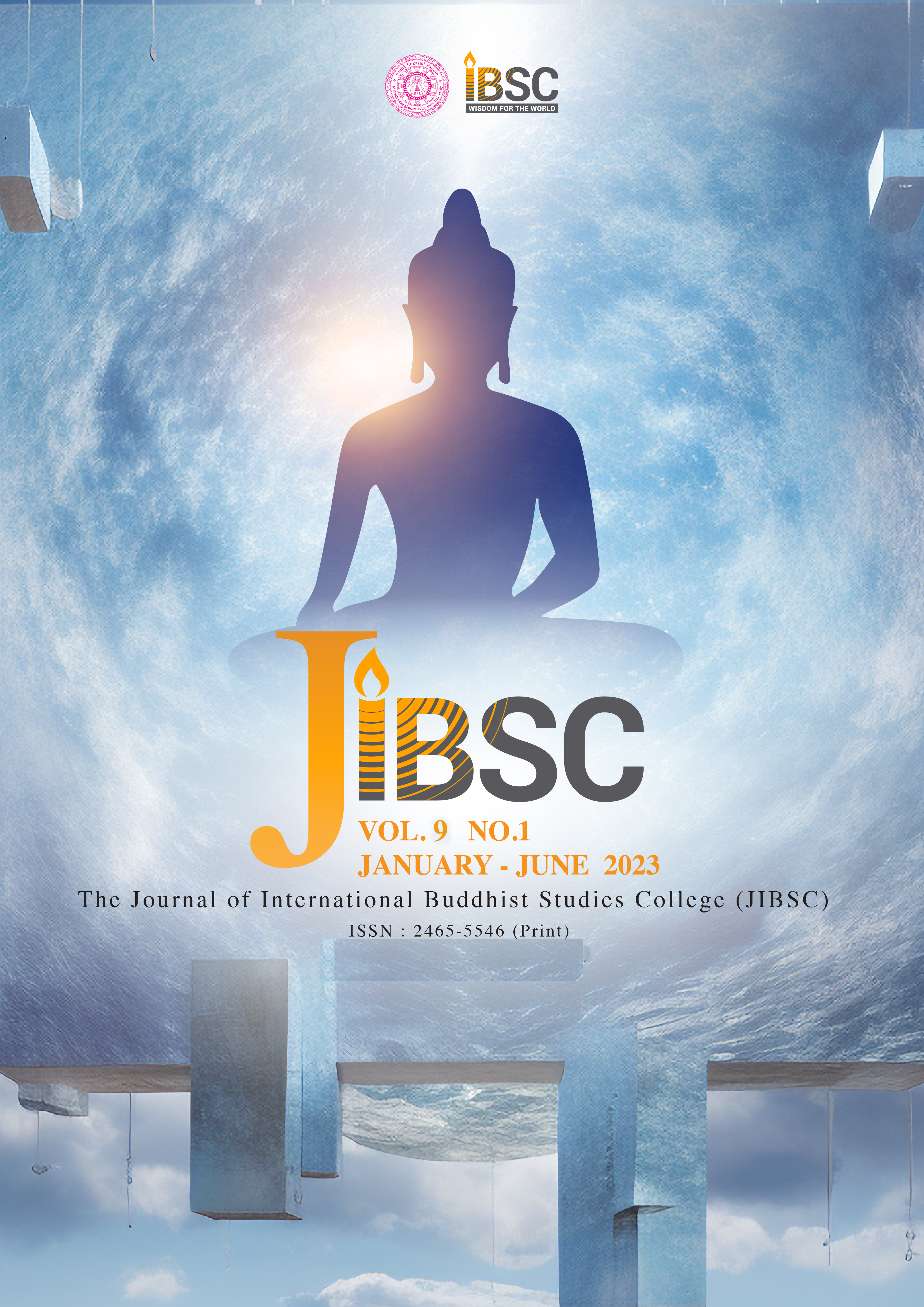The Roles of Buddhist Monks on Monastic Education in Mandalay, Myanmar
Main Article Content
Abstract
Buddhism an education leads learners gain a proper knowledge to understand the reality of life. Buddhist education has focus on the three sources of education; 1) associate with good teacher or good friend, 2) listening or learning, 3) wise attention or thinking and practicing or training. Educational systems are dependent on the system of knowledge. This knowledge cannot operate without wisdom. And then, wisdom becomes the principal goal of the education system. The goal of Buddhist education is to attain “wisdom” (paññā). The Buddhist monks have many roles in Theravāda Buddhism and Mandalay, Myanmar society. The roles of Buddhist monk on education are associated with two kinds of duties (dhūra) which are grandadhura (teaching and learning to Tipiṭaka) and vipassanādhura (practicing and training to threefold training).
Article Details
The Journal of TCI is licensed under a Creative Commons Attribution-NonCommercial-NoDerivatives 4.0 International (CC BY-NC-ND 4.0) licence unless otherwise stated. Please read our Policies page for more information on Open Access, copyright and permissions.
References
Ashin Thiṭṭilla (trans.). Vibhaṅgha: The Book of Analysis. Oxford: PTS, 2002.
Buddhadatta Mahāthera, A. P. Concise Pāli – English Dictionary. Aggārāma, Ambalangoda: University of Ceylon, 1955.
Chin Kung, Master. Buddhism as an Education. Singapore: Buddhadharma Education Association Inc, 1999.
Cambridge International Dictionary of English. UK: Cambridge University Press, 1995.
Dhammasami (Khammai). Between Idealism and Pragmatism: A Study of Monastic Education in Burma and Thailand from the Seventeenth Century to the Present. UK: Oxford University, 2004.
International Crisis Group. Buddhism and State Power in Myanmar. Belgium: International Crisis Group, 2017.
Judy Pearsall and Patrick Hanks. (1st eds.) and Catherine Soanes and Angus Stevenson (2nd eds.). Oxford Dictionary of English. UK: Oxford University Press, 2005.
Narada. The Buddha and His Teachings. Kula Lumper: Publication of the Buddhist Missionary society, 1977.
Nguyen Quy Hoang., “Higher Buddhist Education in Vietnam: Challenges and Solutions”. The Journal of International Buddhist Studies College (JIBSC), Vol.1, 2015.
Nyo Me Aung and Nwe Nwe Yi. The History and Development of Monastic Education. Yangon, Myanmar: University of Yangon, 2016.
P.A. Payutto (Somdet Phra Buddhaghosacariya). Education Made Easy. Robion Moore (trans.). Bangkok, Thailand: Phli-dhamm Publishing, 2002.
Pragati Sahni. Environmental Ethics in Buddhism; A Virtues Approach. London: Routledge, Taylor & Francis Group, 2008.
R. C, Pandeya and S. R, Bhatt. (eds). Knowledge, Culture and Value; World Philosophy Conference. Delhi, India: Motilal Banarsidass, 1989.
Ratanasara, Havanpola. Buddhist Philosophy of Education. Kelaniya, Sri Lanka: Vidyalanka University, 1995.
Ratnapala, Nandasena. Buddhist Sociology. Delhi, India: Sri Satguru Publication, 1993.
Rhys Davids. T. W and William State (eds.). The Pāli Text Society’s Pāli – English Dictionary. Oxford: PTS, 2009.
Richard F, Gombrich. Buddhist Precept and Practice, Traditional Buddhism in the Rural Highlands of Ceylon. Delhi: Motilal Banarsidass Publishers, Private Limited, 2008.
Roger, Bischoff. Buddhism in Myanmar: A Short History. Kandy, Sri Lanka: Buddhist Publication Society, 1995.
Shriman Narayan (ed.). The Basic Work: The Selected Works of Mahatama Gandhi. Vol 4. India: Navajivan Publishing House, 1968.
Sri Dhammananda. K. (ed.). What Buddhists Believe. Taipei, Thaiwan: The Corporate Body of the Buddha Educational Foundation, 1993.


